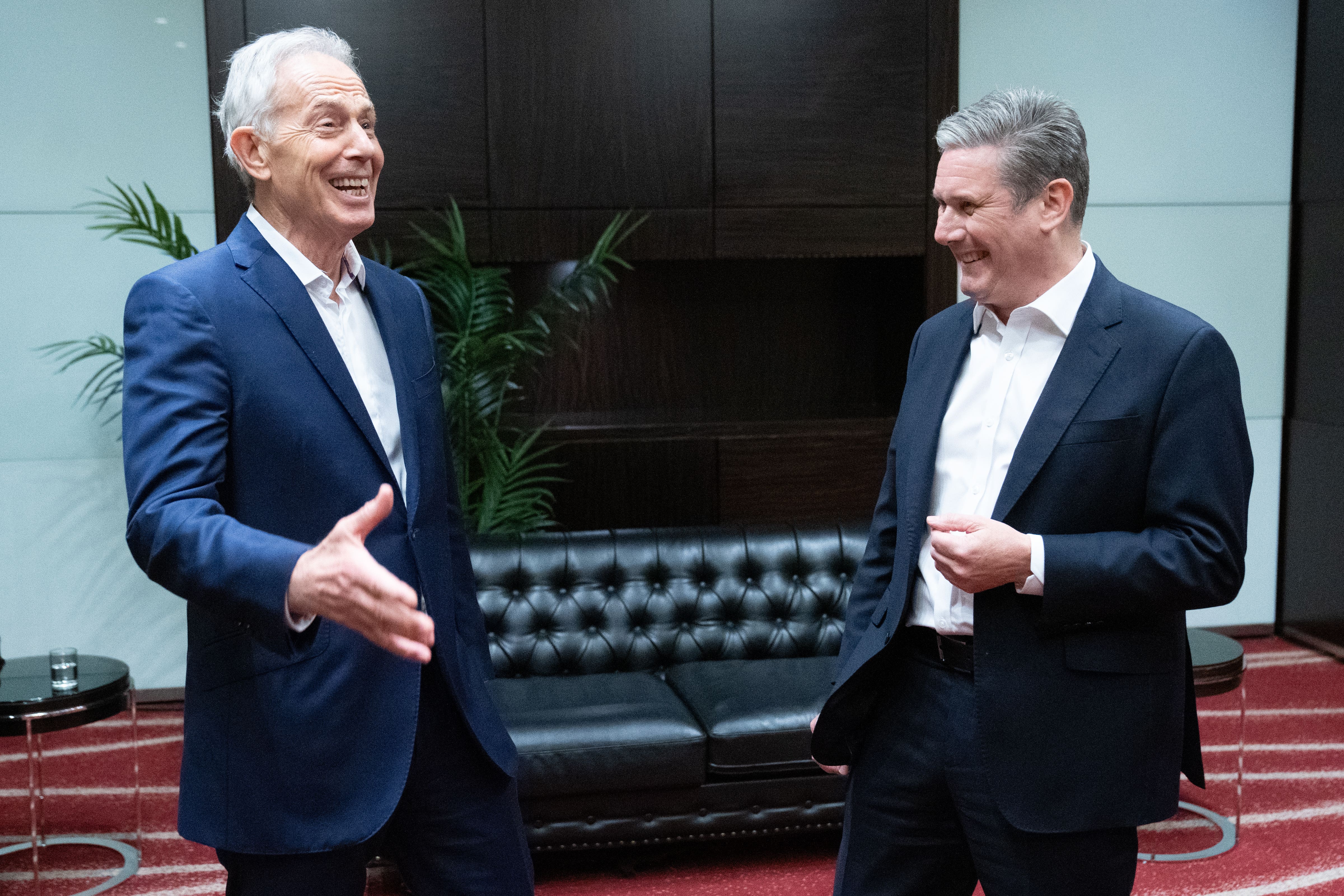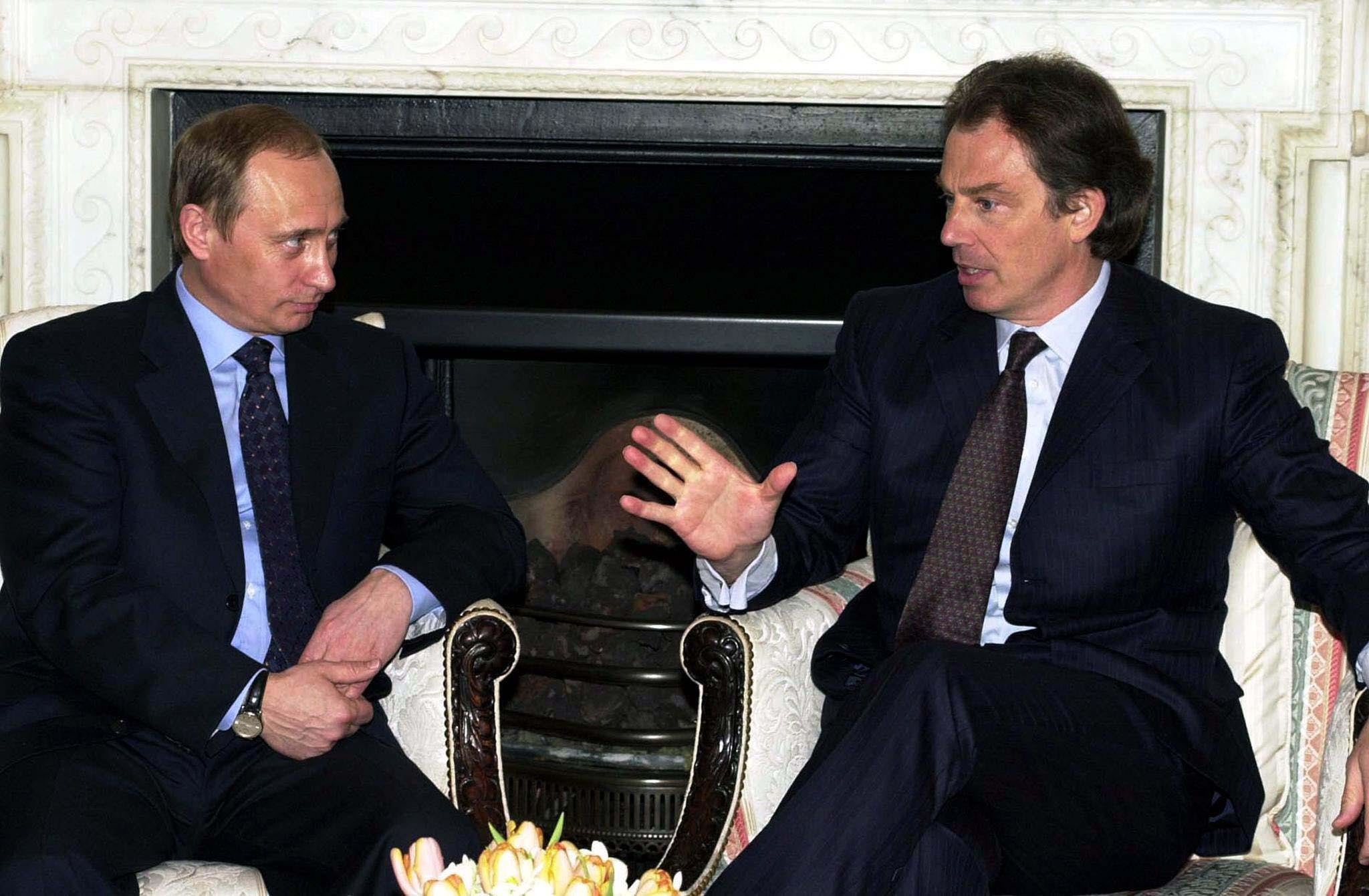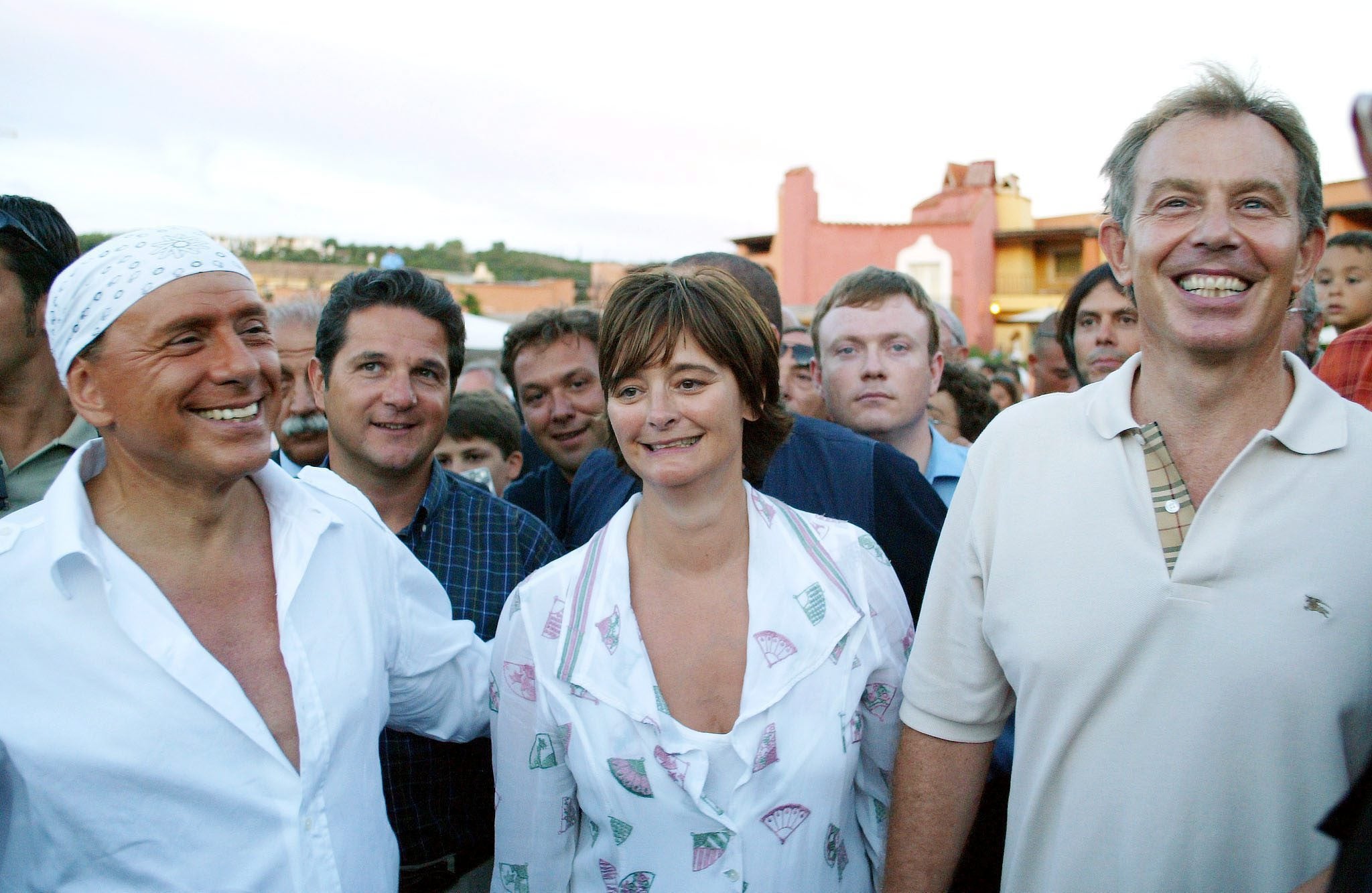Brexit failed – and it triggered mass immigration, Tony Blair says
Exclusive interview: Former prime minister lambasts Boris Johnson for promising to ‘take back control’ of migration but instead ‘replacing young Europeans with older immigrants from Africa and Asia’ – as he urges Keir Starmer to repair ties with the EU
Sir Tony Blair has delivered the most devastating critique of the failure of Brexit and how consequently Britain has ended up with mass immigration instead of the promise to “take back control”.
“We’ve swapped out younger, usually single people coming in from Europe to work in hospitality, technology and other sectors for much increased immigration from Asia and Africa,” he said.
In an exclusive interview with Geordie Greig, editor-in-chief of The Independent, Sir Tony highlighted the way “we have weakened ourselves” in the UK as a result of Brexit.
Watch the Blair interview in full on Independent TV
Britain’s most successful prime minister of the 21st century lambasted the Tories for “putting politics before policy” over 14 years, which led to a period of instability not seen since Margaret Thatcher won power in 1979. He said the Tories had perverted Thatcherism into a kind of nationalism through extreme Euroscepticism.
In a wide-ranging interview, following the publication of his book On Leadership, he highlighted:
- The “delusion” of Vladimir Putin and why Western allies must stand firm with Ukraine.
- The need for the UK and her allies to be prepared for a global war: “It will almost certainly be as a result of the US-China relationship deteriorating.”
- The importance of working with controversial leaders – including Donald Trump – as his personal relationship with “bunga bunga” prime minister Silvio Berlusconi won London the Olympics over Paris.
- How artificial intelligence (AI) is key to Britain’s future prosperity – commercially and for defence: “The most important development since the industrial revolution.”
- How history may vindicate his controversial legacy over the Iraq war: “Maybe different perspectives in time will come about. The most important thing for me at this juncture is for people to understand that it’s not all we did.”
Sir Tony urged Sir Keir Starmer to “repair the relationship” with the EU as he warned that Western leaders must prepare for a potential global war in a world destabilised by the tension between America and China, and a “delusional” Vladimir Putin’s invasion of Ukraine.

Sir Tony’s priority has always been to underpin UK influence by being “America’s closest ally”, with a strong role in the European Union and peddling soft power through international aid. He sees an urgent need to repair the relationship with the EU in a world that some close to him believe is now in a potential pre-war scenario.
“We need to think how we repair the relationship with the EU, and then in time, we’ve got to think as a country of where we fit in the world. One of the things that gives a country energy, and appetite for facing all the challenges is they know where they fit. There’s no doubt we’ve weakened ourselves,” he said.
“By the middle of this century, you’re going to have three superpowers – America, China, and ... India. All other countries are going to be small in comparison,” he added.
While not wanting to give a running commentary on the Starmer government, Sir Tony differs with the current prime minister over negotiations with the EU – with Sir Keir rejecting the youth mobility scheme that would allow easier travel for those under 30.
“Personally, I think youth mobility within Europe would be a good thing for us, but, you know, the government's got to take a view on that,” he said.

Sir Tony eviscerated Brexit for failing to deliver on its one big promise of reducing immigration, calling it “absolutely extraordinary” that Brexit had “increased immigration” as the most recent figures showed net migration hitting 764,000 in 2022.
“I understand it wasn’t the intention, but the result is we have higher levels of immigration and high levels of people bringing dependents into the country,” he said.
He said Brexit has caused mass immigration instead of the promise to “take back control” of migration by Boris Johnson.
But Sir Tony’s priority is the potential global crisis caused by “a delusional” Vladimir Putin and his invasion of Ukraine, warning that the West must stand up to the Kremlin and be resolute in its support for Kyiv.
“The one thing that Putin thinks is that he can always outlast the West, that the West lacks staying power. We must provide evidence – and Ukraine is the test – that it’s got staying power.”
Such tensions, with potential for terrible consequences, make him “anxious”.
“People whose views I respect say we are almost in a pre-war period,” Sir Tony said. “If we ever end up with a major global conflict, it will almost certainly be as a result of the American-Chinese relationship deteriorating.”

But he remains an optimist. “I find it hard to believe that either America or China wants such a conflict. China’s got such a massive interest in stability,” the former prime minister said. “Yet what Russia did in Ukraine changed the conventional wisdom. I think you’ve got to be anxious, because you’ve also got flash points like Taiwan, and obviously what Putin’s doing in Europe that could potentially lead to this.”
“The consequences of such a conflict would be so devastating, so I hope people won’t do it, but you’ve got to prepare for all eventualities,” he added.
Sir Tony is messianic about AI, which he sees as crucial – not just for future economic prosperity but also in any future conflict.
“This is as important as the effects of the 19th-century industrial revolution, it’s going to change everything,” he said. “We must access its opportunities and mitigate risk. The UK already has a strong position in artificial intelligence; after America and China we are number three in the world. So, how do we keep that, and how do we grow?”
When it comes to the US, Sir Tony believes that whoever is elected president in November, Sir Keir will make the relationship work.
“You don’t get to choose another country’s leader. You have to work with them and find the points of agreement and work with them. I’ve worked with the Trump administration, and actually met Donald Trump in the context of the Abraham Accords in the UAE and Israel that I was working on, where we were working on the same path.”

Sir Tony cited his working relationship with the late Silvio Berlusconi, former prime minister of Italy, as an example of how it benefits Britain to deal with international leaders ignored or shunned or considered toxic on the world stage – claiming it clinched London hosting the 2012 Olympic Games over Paris.
“[Berlusconi] gave us the votes for the Olympics which got us across the line in front of France,” Sir Tony said. “So we wouldn’t have had the 2012 Olympics in the UK had they not backed us, because I think the votes were very narrow in the end, and they were originally pledged to France.
“I went to see him – there’s always this line that I went on holiday with Silvio. I didn’t go on holiday – I went to see him when I was on holiday in Italy at his place in Sardinia,” he added.
Sir Tony noted that the key to his relationship with the Italian premier was to deal with the man he experienced rather than the image others projected.
“I had a relationship with him because I’d always found him very straight to deal with. You speak as you find, not as other people tell you.
“He said to me, because I always treated him with respect, when – because of all the ‘bunga bunga’ stuff – many didn’t want to be seen with him. He said to me ‘How much does it matter to you?’ And I said, ‘It really matters to me. I really want to win this bid for Britain.’ So he said, ‘OK, we’ll switch the votes’”
Legacy preoccupies Sir Tony. “The relationship with the US was absolutely critical for me and still is,” he said. “Now, I know a lot of people didn’t like the decisions I took post 9/11 on Afghanistan and, of course, Iraq. But it was always important that we stayed as the closest American ally, and I still believe that’s still true.”
On Iraq, which turned him from feted to hated for many, he added: “History is a long time in the making and look, there may be different perspectives in time that come about on it.”
Subscribe to Independent Premium to bookmark this article
Want to bookmark your favourite articles and stories to read or reference later? Start your Independent Premium subscription today.





Join our commenting forum
Join thought-provoking conversations, follow other Independent readers and see their replies
Comments